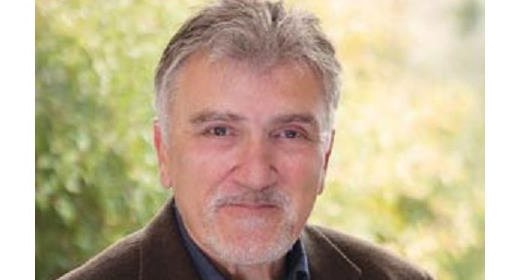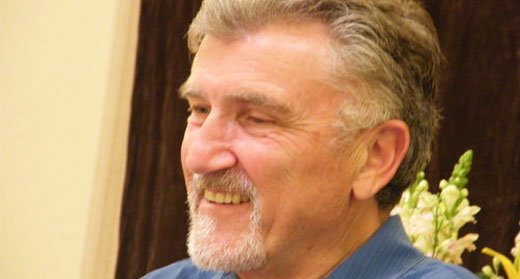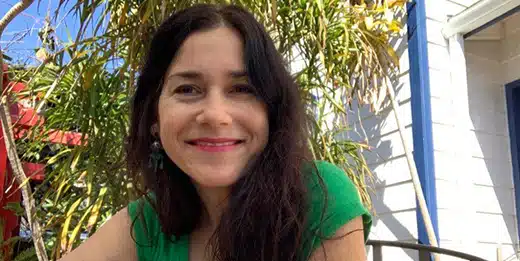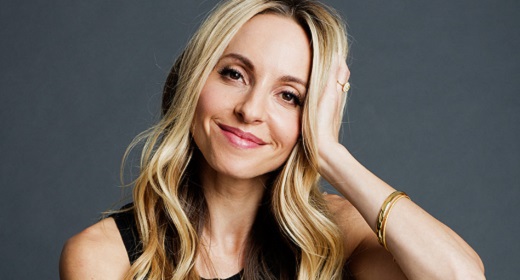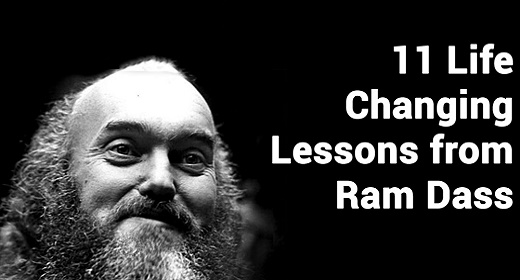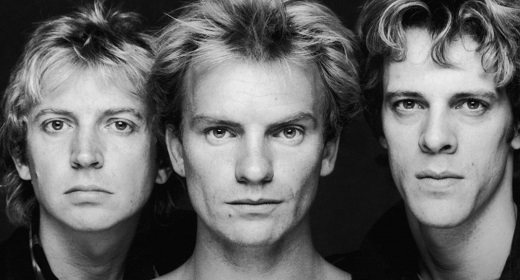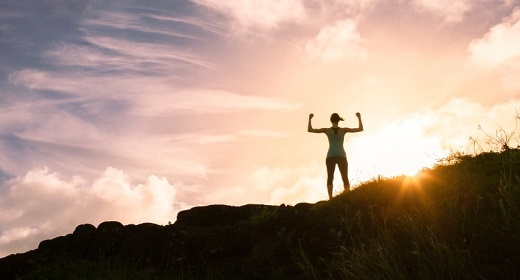by Gabby Bernstein: Are you afraid to be vulnerable? If so, you’re not alone…
We’re taught to believe vulnerability is weakness. We think being vulnerable makes us look foolish. We fear that if we get vulnerable with another person, we may get hurt and never recover.
In this post I’m going to invite you to see vulnerability in a much different way. But first, let’s talk about why and how we avoid being vulnerable.
How We Avoid Being Vulnerable
Vulnerability is our willingness to expose our truth. This can be really hard, because the truth can be scary and shameful. Therefore, we do everything we can not to be vulnerable.
We try to avoid vulnerability in many ways. But the biggest way we do it is through judgment.
In many cases judgment has been our greatest defense mechanism. We have used it to defend against our vulnerability. We fear that if we let our guard down and act compassionately and lovingly toward one another that we’ll be taken advantage of and no longer be safe.
This is totally understandable given the traumas we’ve experienced in the past and all the new traumatic events in the world. We’ve built up a wall against the presence of love and instead grown to rely on judgment as our protector.
Our judgment of others has protected us from facing our wounds. But it’s also held us back from healing and growing. Our unwillingness to face the discomfort with self-compassion keeps us from experiencing miracles.
We rely on judgment to avoid shame
Behind the wall of judgment lie our deepest feelings of inadequacy and shame. When we feel separate from others our shame is triggered. We feel alone, not good enough and unworthy of love and connection.
Shame is the most difficult emotion to accept and we’ll do anything to avoid feeling it. We resist it by projecting it onto others through judgment, and then we grow to rely on judgment as a way of finding relief from our wounds.
But when we suppress our shame and refuse to be vulnerable, we feel disconnected from others and out of alignment with our truth.
Refusing to be vulnerable can make us feel incredibly lonely, even when we’re surrounded by family and friends. When we don’t allow ourselves to be vulnerable, we can feel like we’re putting on an act for the world.
Our true power lies in our willingness to be vulnerable
We think being vulnerable is weak. But nothing could be further from the truth.
Being vulnerable isn’t weak. It takes guts!
We put enormous effort into hiding our vulnerability, but it’s our vulnerability that truly heals. When we feel safe enough to expose our shadows, that’s when we become free. We don’t have to protect our shadows any longer. We can begin to dismantle the wall that separates us from real, authentic, fearless love.
Vulnerability is a gift we give others because it allows them to see us for who we really are. It lets us be authentic and truthful, which in turn allows us to create genuine connections and deepen our relationships.
All relationships benefit from our willingness to be vulnerable. When we expose our truth, we give others permission to do the same. In moments of authentic expression we release all the pretenses we’ve built up and let people in on who we really are.
Being vulnerable allows us to show up more fully in the world. Your authentic truth is your magnificence. Your willingness to let the world see you in truth is your greatest contribution. When we all get real, the world will heal!
VULNERABILITY IS OUR GREATEST STRENGTH
Check out this beautiful clip from SuperSoul Sunday to see what I mean. This is a clip from Oprah’s talk with Dr. Brené Brown about how vulnerability is our greatest strength:
(If you haven’t seen Brené’s famous TED Talk on vulnerability, click here to watch it now.)
In the video clip above, Oprah says that vulnerability is the cornerstone of confidence. This couldn’t be more true. When we are vulnerable we are real. You’ll see how strong you really are and you’ll stand tall in your authentic truth.
Vulnerability is incredibly powerful. It creates genuine connection. There is nothing sexier than your authentic truth. When you let your guard down and become willing to be vulnerable, you invite others to do the same. You strengthen your relationships. You let others know it’s safe to be honest with you. You become a messenger for the light!
How to actually be vulnerable
The moment we are vulnerable is the moment we feel free. Being vulnerable allows us to let go of whatever false persona we’ve been projecting. Instead, we can step into our truth.
So how do you go about actually being vulnerable?
VULNERABILITY IS A PRACTICE
First, it’s important to remember that vulnerability is a practice. The more you allow yourself to be vulnerable, the easier it becomes. Vulnerability feels good because you’re honoring your emotions and expressing them honestly. The more you practice it, the better you’ll feel!
Being vulnerable may be uncomfortable at first. That’s okay. There’s a great passage in A Course in Miracles that says that we have to be grateful for our most uncomfortable circumstances because those are the circumstances that show us what we need to heal.
Remember that. Because this is what we are here for. We’re not here to walk around being perfect, enlightened beings. We’re here on a journey of unlearning fear and remembering love. One day at a time we show up with the intention to surrender and then surrender some more.
HEAL YOUR JUDGMENT
 The most powerful way you can start embracing your vulnerability is by healing your judgment. The first step in healing our shame and letting down our guard is to accept that we are not the victim of the world we see. This is why the Judgment Detox process begins with witnessing your judgment (Step 1) and honoring your wounds (Step 2). These two steps bring you clarity and deep, deep relief.
The most powerful way you can start embracing your vulnerability is by healing your judgment. The first step in healing our shame and letting down our guard is to accept that we are not the victim of the world we see. This is why the Judgment Detox process begins with witnessing your judgment (Step 1) and honoring your wounds (Step 2). These two steps bring you clarity and deep, deep relief.
ALLOW OTHERS TO BE VULNERABLE WITH YOU
Another big part of practicing vulnerability is to allow others to be vulnerable around you, too. When others express vulnerability to us, it is our job to be kind and compassionate. It takes a lot of bravery to expose your shame and be honest about your feelings. Therefore, we must hold others in their vulnerability and thank them for being real. The temporary discomfort we might feel is far outweighed by the stronger, deeper and more authentic relationships we’ll build.
My dear friend Lewis Howes has amazing insight into vulnerability, especially when it comes to men. If you’re a man who struggles with being vulnerable, Lewis’s advice in his book The Mask of Masculinity is indispensable. It’s incredibly valuable for women, too. Lewis will help you hold space for your partner so he can feel safe being vulnerable with you.
If you are having a tough time letting go of your judgment of another person, say this prayer.
How to be vulnerable and authentic at work
One of the situations where it’s hardest to be vulnerable is at work. We often think that vulnerability is unprofessional, especially in a more formal workplace. But in fact, being authentic and vulnerable makes us happier and more productive at work. And it makes for much stronger teams!
I’m excited to share that my good friend Mike Robbins takes on this topic in his book Bring Your Whole Self to Work. I highly recommend reading his blog post about what it means to bring your whole self to work.
Here’s an excerpt from Mike’s book:
Being vulnerable takes courage. Unfortunately, all too often we relate to vulnerability — especially in certain environments, relationships, and situations (particularly at work) — as something we should avoid. But it’s vulnerability that liberates us from our erroneous and insatiable obsession with trying to do everything “right” — thinking that we can’t make mistakes, have flaws, or be human. Embracing vulnerability allows us to let go of the pressure-filled perfection demands we place on ourselves.
In addition to liberating us, being vulnerable gives other people permission to be vulnerable as well; and in doing so, we open up the possibility of real human connection. The natural human response to vulnerability is empathy. And with empathy, we can create deeper trust, connection, and understanding with those around us.
Source: Gabby Bernstein

